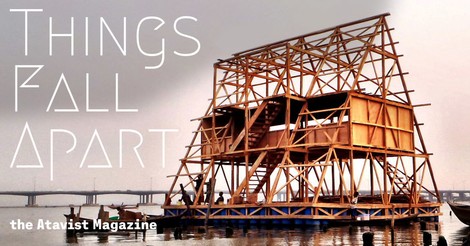Your podcast discovery platform
Curious minds select the most fascinating podcasts from around the world. Discover hand-piqd audio recommendations on your favorite topics.

piqer for: Global finds
Ciku Kimeria is a Kenyan author "Of goats and poisoned oranges" - (https://www.amazon.com/goats-poisoned-oranges-Ciku-Kimeria-ebook/dp/B00HBBWPI6), development consultant, adventurer and travel blogger (www.thekenyanexplorer.com). She writes both fiction and non-fiction focusing on African stories that need telling. She has worked on diverse pieces for various international and local publications including Quartz, Ozy, The East African etc. She has travelled to 45 countries – 16 of them in Africa. 153 countries to go and 63 territories!
"Of goats and poisoned oranges" has been extremely well received in Kenya and beyond. It tells the story of a Kenyan middle aged power couple and their complicated marriage. The novel explores issues of greed, revenge, betrayal and murder. It runs from the 1960s to 2013. It has been described as “Wicked, funny, poignant, wacky, human, a big ball of fun and danger”, “A unique and captivating book”, “Fun and intriguing”, “Impossible to put down once you start reading.”
She recently moved to Dakar, Senegal from Kenya to work on her second novel. She also works at as the Africa Communication Manager at a leading global strategy consulting firm.
She holds a B.S. in Management Science from MIT with minors in Urban Planning and International development studies.
The Demise Of The Makoko Floating School In Nigeria
Years back the Makoko Floating School was being lauded everywhere by mainstream media. It was an architectural feat that made for a great story—one that anyone, especially us Africans tired of stories where we are always the beneficiaries of Western benevolence, but never masters of our own destiny, really love. Kunle Adeyemi, a Nigerian architect, was awarded a prestigious prize at the Venice Biennale for designing a school in Makoko—one of the largest slums in Lagos, Nigeria. This school that floated on water was meant to serve poor children whose neighborhood the government wanted to demolish.
The issue was that while Kunle was receiving prizes internationally and while his profile was rising on the global platform, the school was never used due to many reasons. These include lack of government support, practical design issues such as a lack of toilets and blackboards once it was opened, a crumbling structure with no maintenance from a community that was poor, and various other challenges.
The project was a chimera composed of flawed and superficial ideas and curated by deflection, obfuscation, and overestimation. The people who wanted the illusion to be real allowed it to spin unchecked—until a precipitous void made it impossible to believe.
Three years after the school was started, it collapsed in a storm. What followed was a PR campaign for involved parties to save face.
“It was supposed to be innovation, but now we’re being told it was experimentation,” Papa Omotayo, a Lagos-based architect and friend of Adeyemi’s, said of the floating school a few days after the collapse. “The issue is, can you experiment in a community like [Makoko] knowing things like budget, like social issues, and more importantly knowing that children are involved?”
The issue the article addresses is part of a larger issue in the development space—where charismatic founders usually get carte-blanche to run elaborate projects with little scrutiny from those who should be more discerning.
